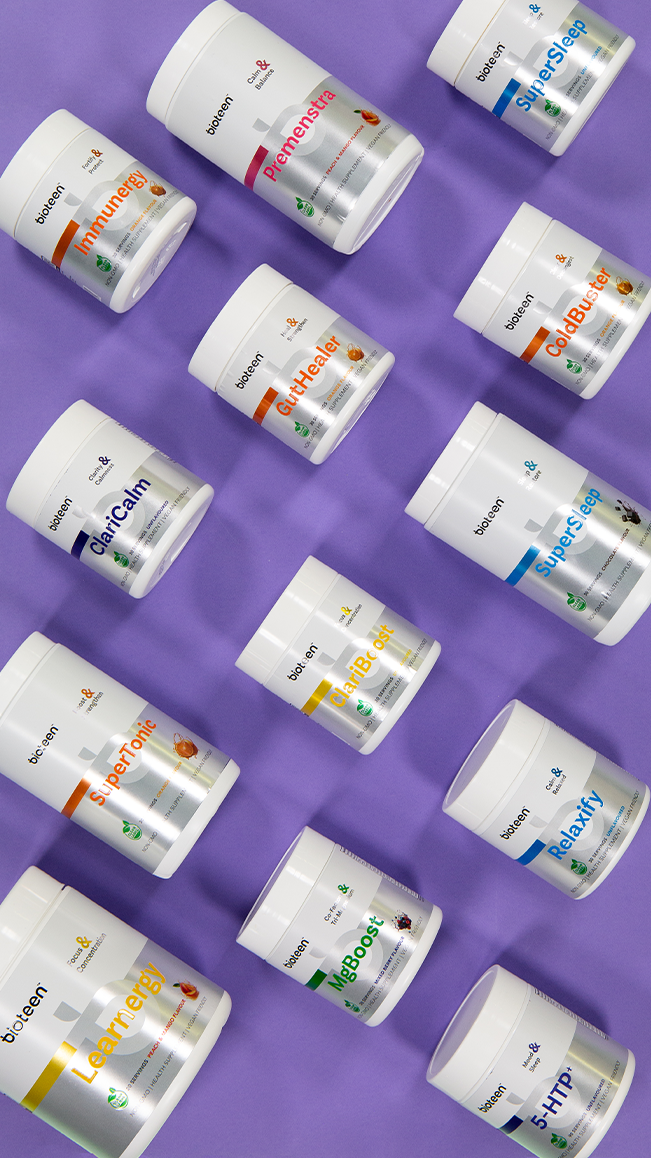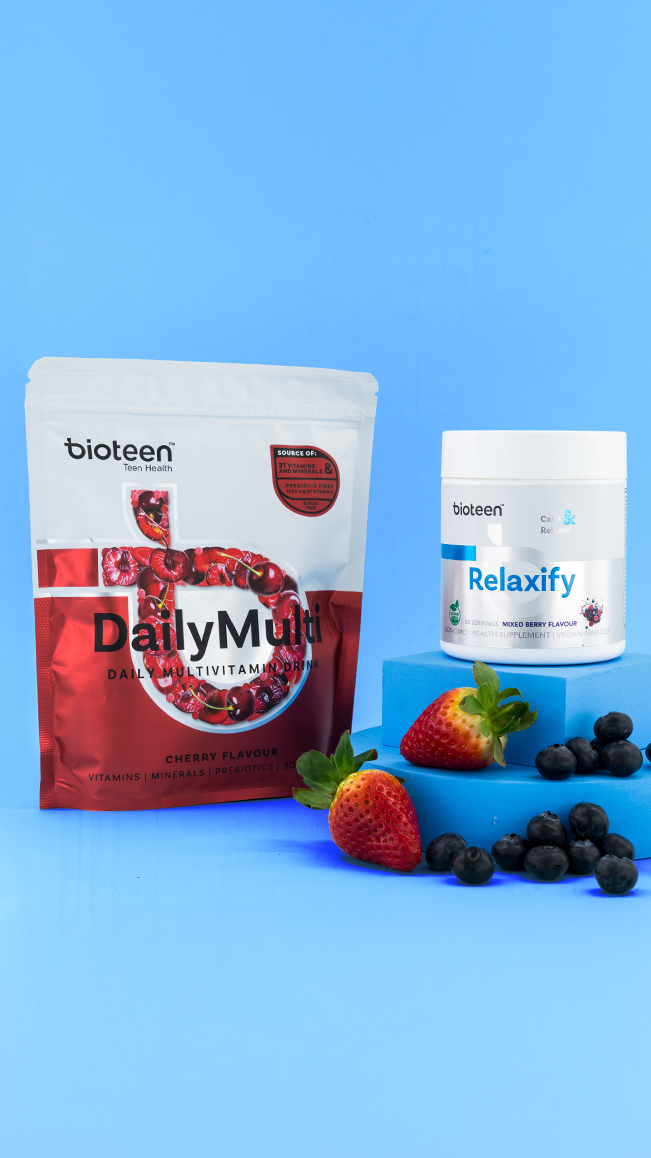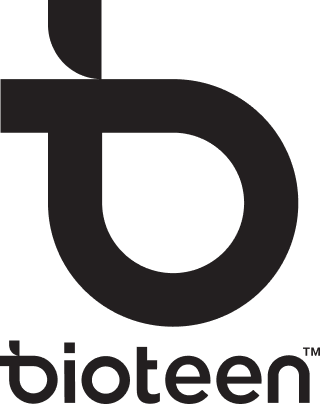
Hidden Nutrition Gaps Every Parent Should Know About
When it comes to raising kids, we all want the same thing: for them to grow up healthy, resilient and thriving.
But the truth is, many adolescents aren’t getting the nutrients they need - even when food is on the table.
On this World Food Day, it’s worth asking: Are our kids truly getting the nutrition that fuels their growth, learning, and emotional well-being?

Why Nutrition Gaps Matter
Adolescence is one of the most nutritionally demanding life stages. Between rapid growth, changing hormones, and busy schedules, nutrient needs skyrocket. At the same time, this is the stage where picky eating, meal skipping, and processed convenience foods often take over.
Research shows that many teens fall short in key nutrients like calcium, magnesium, zinc, iron, B-vitamins, and omega-3 fatty acids . These shortfalls don’t just show up in lab results - they show up in everyday struggles:
- Difficulty concentrating in class.
- Low energy or poor sleep.
- Mood swings, irritability, or stress overload.
- Slower recovery from sports or illness.

The WHY Behind Bioteen
At Bioteen, we believe supplements shouldn’t be a guessing game. They should be:
✅ Clean - no artificial sweeteners, fillers, or unnecessary additives.
✅ Effective dosing - because a sprinkle of the right ingredient isn’t enough to make a real difference.
✅ Made for adolescents - teen biology isn’t “mini adult” biology, so products must be tailored for their unique needs.
✅ Easy to use - because if it’s complicated, or tastes terrible, it’ll just sit in the cupboard.
That’s our WHY: clean, effective, teen-specific nutrition that helps parents fill the gaps in a simple, practical way.

Where Gaps Show Up Most
-
Busy Schedules & Skipped Meals
Between school, sports, and social lives, many kids skip breakfast or come home with untouched lunchboxes. This can lead to low energy, brain fog, and poor academic performance. Products like MaxiMeal™ provide complete, balanced nutrition in a single shake - protein, low-GI carbs, healthy fats and micronutrients in one easy scoop. -
Picky Eating & Gut Health
When vegetables, fiber and fermented foods are missing, the gut microbiome suffers - and since 70% of the immune system is linked to the gut, that impacts resilience . Supplements like the Happy Gut Duo™ (Daily Multi + Gut Healer) support digestion, nutrient absorption, and immune health with prebiotic fiber, probiotics, and essential vitamins. -
Immune Defense
Adolescents are especially prone to recurrent colds and infections during busy school terms. Products like Immunergy™ (Vitamin C, glutamine, zinc, NAC, echinacea) and ColdBuster™ strengthen the immune system and provide additional support during seasonal challenges . -
Sleep Struggles
Sleep is the foundation of growth and resilience, but many adolescents wrestle with stress-induced insomnia. SuperSleep™ combines magnesium, L-theanine, glycine, and GABA to calm the nervous system and promote deep, restorative sleep - no grogginess, no habit-forming risks . -
Mood & Stress
Emotional ups and downs are part of growing up, but for kids under academic or social pressure, these can spiral into anxiety, irritability, or feeling overwhelmed. Relaxify™ and ClariCalm™ support neurotransmitter balance with calming nutrients like L-theanine, taurine, and myo-inositol - helping kids regulate emotions and manage big feelings . -
Sports Performance & Recovery
Active kids burn through energy, hydration, and protein faster than most adults realize. Without proper fueling, they risk fatigue, cramps, or delayed recovery. Sportonic™ replenishes electrolytes and vitamins for hydration, while Recovery Boost™ and MaxiMeal™ help repair and rebuild after long training sessions.
Why It Matters Long-Term
Nutrient gaps during adolescence don’t just affect today’s mood or energy levels - they can shape tomorrow’s health outcomes.
- Up to 90% of peak bone mass is built by age 18, making calcium and vitamin D essential .
- Deficiencies in iron and B-vitamins are linked to impaired academic performance and mood .
- Omega-3 shortfalls are tied to both reduced cognitive performance and higher rates of anxiety and depression.
By filling these gaps now, we’re not just helping kids thrive in the classroom, on the field, or at home - we’re laying the foundation for lifelong health.

🌍 World Food Day Reminder 🌍
World Food Day reminds us that good nutrition is a global issue, but also a very personal one.
For many parents, the daily challenge is less about food access and more about food quality: How do we get kids to eat meals that truly support their growing bodies and brains?
The answer starts with awareness. Teaching kids that food = fuel helps them make smarter choices, understand why certain nutrients matter, and build habits that will carry into adulthood.
Because what we feed our children shapes so much more than their day - it fuels the focus, growth, immunity, mood, sleep, and performance they need to flourish.
References
- Weaver CM, et al. The National Osteoporosis Foundation’s position statement on peak bone mass development and lifestyle factors. Osteoporos Int. 2016.
- Bailey RL, et al. Estimation of total usual nutrient intakes of US adolescents. J Nutr. 2018.
- Shreiner AB, et al. The gut microbiome in health and in disease. Curr Opin Gastroenterol. 2015.
- Maggini S, et al. Immune function and micronutrient requirements. Ann Nutr Metab. 2018.
- Li T, et al. Echinacea and immune function: a systematic review. J Diet Suppl. 2020.
- Abbasi B, et al. The effect of magnesium supplementation on primary insomnia. J Res Med Sci. 2012.
- Bannai M, et al. The physiology and pharmacology of glycine: therapeutic applications. Front Mol Neurosci. 2017.
- Nathan PJ, et al. The neuropharmacology of L-theanine. Asia Pac J Clin Nutr. 2008.
- Levine J, et al. Inositol treatment for panic disorder, OCD, and depression. J Clin Psychopharmacol. 1995.
- Cermak NM, et al. Sports nutrition for young athletes. Sports Med. 2013.
- Thomas DT, et al. Position of the Academy of Nutrition and Dietetics on nutrition and athletic performance. J Acad Nutr Diet. 2016.
- Weaver CM, et al. Peak bone mass development. Osteoporos Int. 2016.
- Lozoff B, et al. Iron deficiency and child development. Annu Rev Nutr. 2006.
- Swanson D, et al. Omega-3 fatty acids EPA and DHA in human health. Adv Nutr. 2012.










